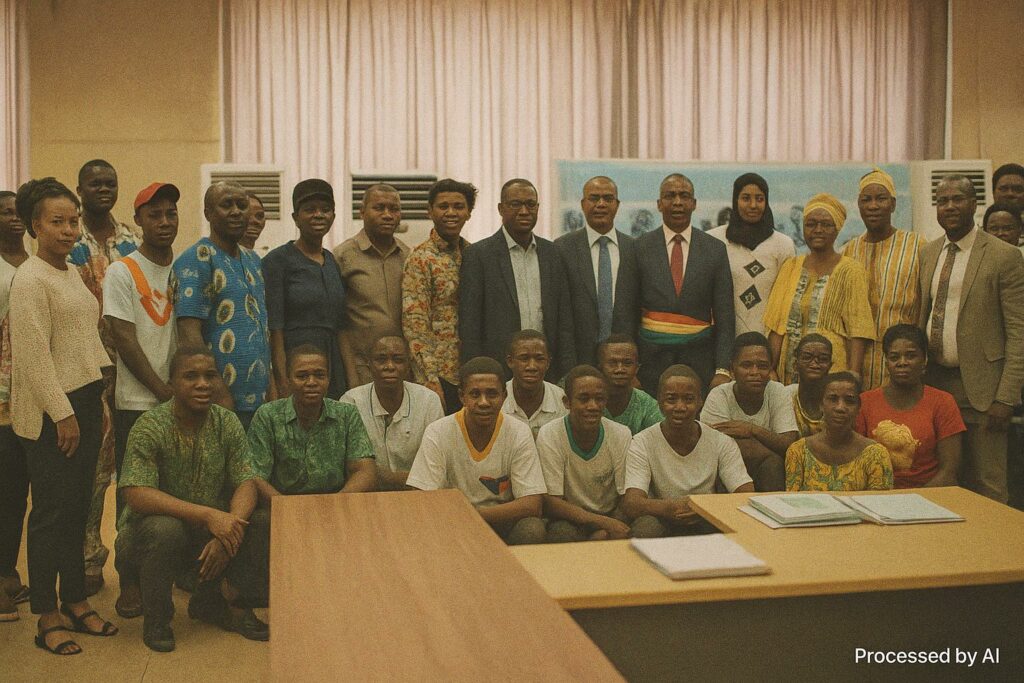African Coalition Rallies in Yamoussoukro
The echo of traditional drums in Yamoussoukro on 29 July signalled more than cultural celebration; it marked the formal launch of an international citizens’ mobilisation steered by the Confederation of African UNESCO Clubs and Associations (CACU) in support of Firmin Édouard Matoko, the Republic of Congo’s candidate for the organisation’s top job. Beneath the ceremony’s pageantry lay a calculated diplomatic move aimed at consolidating Africa’s forty-eight votes inside the UNESCO Executive Board before the October ballot (Agence ivoirienne de presse, 29 July 2025).
CACU president Allogmom Gabin framed the initiative as a continental responsibility rather than a national campaign. In his words, “remitting the helm to Africa, fifty years on, is an act of equilibrium for the multilateral system.” That appeal quickly resonated beyond Côte d’Ivoire. Within days, Lagos, Addis Ababa and Rabat confirmed satellite events designed to keep the momentum alive, and the African Union’s Commission hinted it could issue collective guidance should member states reach consensus in early September.
Matoko’s Diplomatic Trajectory
Few contest the depth of Matoko’s multilateral résumé. Trained in Brazzaville and Paris, the 66-year-old historian spent more than two decades inside UNESCO, most recently as Assistant Director-General in charge of Priority Africa and External Relations. In that portfolio he supervised programmes ranging from heritage preservation in Timbuktu to gender-sensitive curricula across sixteen Sahelian states (UNESCO biographies 2024).
Career diplomats underline two assets. First, Matoko combines administrative familiarity with political subtlety, having brokered consensus when Washington and Beijing clashed over funding modalities in 2022. Second, his tenure coincided with UNESCO’s pivot toward tangible field impact, offering him internal credibility as a ‘doer’ rather than a procedural figurehead. As former French ambassador to the agency Laurent Stefanini notes, “Matoko knows the Secretariat’s nerve endings—and where reform can occur without rupture.”
Congo-Brazzaville’s Soft Power Calculation
Brazzaville’s endorsement of Matoko dovetails with President Denis Sassou Nguesso’s incremental strategy of diversifying the nation’s diplomatic portfolio beyond hydrocarbon negotiations. Over the past decade Congo-Brazzaville has sponsored cultural festivals, funded heritage restorations in Pointe-Noire and established a regional climate observatory in Dolisie. Elevating a Congolese national to UNESCO’s apex would symbolically consolidate this soft-power architecture while costing the treasury far less than hard-infrastructure diplomacy.
Domestic commentators emphasise that the candidacy also provides an intangible dividend: it projects an image of national expertise rather than dependence. In a rare bipartisan note, opposition lawmaker Jean-Gildas Mokolo conceded that “Matoko’s track record offers our youth a template of international professionalism.” Such consensus, though unusual, underscores the bid’s capacity to transcend Congo’s internal political cleavages and present a unified continental narrative.
UNESCO at a Crossroads
The wider stakes reach beyond African representation. UNESCO faces simultaneous budgetary pressure and geopolitical contest, with several major contributors periodically suspending dues. Under outgoing Director-General Audrey Azoulay, limited reforms streamlined the Secretariat, yet member states continue to debate the balance between normative standard-setting and operational fieldwork.
Observers argue that an African leader could shift institutional priorities toward education recovery post-pandemic, heritage protection in conflict zones and digital capacity building for the Global South—areas where Matoko has professional capital. Conversely, critics wonder whether elevating an insider risks incrementalism when bolder restructuring may be necessary. That dilemma renders the October vote as much a referendum on UNESCO’s future orientation as a contest of résumés.
Diplomatic Chessboard Two Months Out
Three declared candidates—Matoko, Spain’s María Felisa González and Japan’s Taro Watanabe—are currently courting the 58-member Executive Board. African diplomats privately concede that securing Asian or Latin American swing votes will determine the outcome. CACU’s campaign strategy therefore extends to strategic capitals such as Brasilia and Jakarta, where pan-African community networks can amplify the case for geographical balance within the UN system.
For Brazzaville, the run-up to October is a calibrated exercise in quiet lobbying. Sources close to Congo’s foreign ministry indicate that President Sassou Nguesso personally contacted at least ten heads of state in recent weeks, emphasising Matoko’s ability to bridge North–South divides without antagonising any major power. Should that narrative hold, Congo-Brazzaville could convert a traditionally modest diplomatic footprint into a decisive advantage on the Seine-side corridors of UNESCO headquarters.

